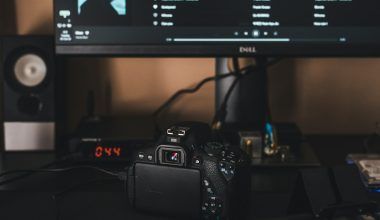The music industry is full of codes and identifiers, but the ISRC code stands out as one of the most important. If you’re a musician, producer, or content creator, you’ve likely heard the term ISRC tossed around. But what exactly is it, and why should you care? More importantly, how can you find ISRC codes for your tracks? Don’t worry—this guide will break it all down in the simplest terms.
What Is an ISRC Code?
Before diving into how to find ISRC codes, let’s first understand what they are. ISRC stands for International Standard Recording Code. It’s a unique identifier assigned to individual recordings. Think of it as a digital fingerprint for your music. Each ISRC is tied to a specific song or recording and helps track its usage across various platforms.
For example, if your song is streamed on Spotify, played on the radio, or used in a YouTube video, the ISRC helps track and attribute royalties correctly. In short, ISRC codes are essential for ensuring you get paid for your work.
Why Do You Need an ISRC Code?
The ISRC code is crucial for a variety of reasons:
- Royalty Tracking: Every time your song is played, whether it’s on a streaming service or traditional media, the ISRC ensures you receive your fair share of royalties.
- Music Distribution: Most digital distribution platforms like TuneCore, CD Baby, and DistroKid require ISRC codes when you upload your tracks.
- Professional Credibility: Having an ISRC code shows that you’re serious about your music and business.
- Copyright Protection: ISRC codes serve as a unique identifier for your recording, making it easier to prove ownership if disputes arise.
Now that you know why ISRC codes are important, let’s move on to how you can find them.
How Are ISRC Codes Assigned?
ISRC codes are usually assigned by one of the following:
- Your Distributor: If you’re using a digital distribution service, they’ll often assign ISRC codes to your tracks automatically. This is the easiest way to get them.
- A National ISRC Agency: Many countries have organizations that assign ISRC codes. For example, the Recording Industry Association of America (RIAA) is the agency for the U.S.
- Do-It-Yourself: If you’re handling everything independently, you can apply for ISRC codes yourself by registering as an ISRC manager.
How to Find ISRC Codes for Your Music
Step 1: Check With Your Distributor
If you’ve released music through a digital distribution platform, the first place to look for ISRC codes is within your distributor’s dashboard. Most platforms like DistroKid, TuneCore, or CD Baby display the ISRC codes assigned to each track in your account.
- Log In: Start by logging into your distributor’s platform.
- Navigate to Your Track List: Find the section that lists your released tracks.
- Locate ISRC Codes: Each track should have its ISRC code listed. If you don’t see it, check the FAQ section or contact customer support.
Step 2: Request ISRC Codes From Your Label
If you’re signed to a record label, they’re likely handling your ISRC codes. Simply reach out to your label and ask for the ISRC codes associated with your tracks. Labels often have their own systems for assigning and managing these identifiers.
Step 3: Use a National ISRC Agency
For independent artists or those not using a distributor, applying for ISRC codes through your country’s national ISRC agency is a straightforward option. Here’s how:
- Find Your Agency: Search online for your country’s ISRC agency. For example, the RIAA handles ISRC codes in the United States.
- Register: Follow the registration process on their website. You may need to pay a small fee.
- Receive Your Codes: Once registered, you’ll either be issued ISRC codes or be given the ability to generate them yourself.
Step 4: Look on Streaming Platforms
If your music is already released and you’re trying to locate the ISRC codes, many streaming platforms display them in their metadata. For example:
- Spotify: Use Spotify for Artists to view the metadata of your tracks.
- Apple Music: Contact Apple Music’s support team to request your ISRC codes if they’re not visible.
- YouTube: ISRC codes are often embedded in the video’s metadata for music videos.
Step 5: Contact Your Performing Rights Organization (PRO)
Performing Rights Organizations like ASCAP, BMI, or PRS often have databases where you can view your registered works and their associated ISRC codes. Log in to your account and search for your tracks to find the codes.
Tips for Managing ISRC Codes
- Keep a Record: Always save your ISRC codes in a spreadsheet or document. This makes it easier to reference them in the future.
- Assign ISRC Codes Before Release: Don’t wait until after your music is distributed. Assign ISRC codes before you release your tracks.
- Use Metadata Tools: Incorporate ISRC codes into your music’s metadata using tools like Audacity or Adobe Audition.
- Double-Check Accuracy: Make sure the ISRC codes are correctly assigned to the corresponding tracks to avoid confusion.
Common Questions About ISRC Codes
Can I Reuse an ISRC Code?
No, ISRC codes are unique and tied to a specific recording. If you release a new version of a song, such as a remix or live performance, it will need its own ISRC code.
Do I Need an ISRC Code for Every Song?
Yes, every individual recording requires its own ISRC code. Albums, EPs, and compilations consist of multiple ISRC codes for each track.
Are ISRC Codes Free?
It depends. Some distributors include ISRC codes in their services at no extra charge, while others may charge a small fee. Applying directly through a national ISRC agency often requires a one-time or annual fee.
Final Thoughts
Finding ISRC codes doesn’t have to be complicated. Whether you’re using a distributor, working with a label, or managing your releases independently, there are multiple ways to obtain and manage these essential codes. By understanding how ISRC codes work and ensuring you have them for every recording, you’ll set yourself up for success in the music industry.
So, take the time to find ISRC codes for your music today. Your royalties, copyright protection, and professional credibility depend on it!
For further reading, explore these related articles:
- The Story of Kesha: A Journey of Music, Strength, and Inspiration
- Exploring the World’s Smallest Speaker: Tiny but Powerful!
For additional resources on music marketing and distribution, visit Deliver My Tune.






